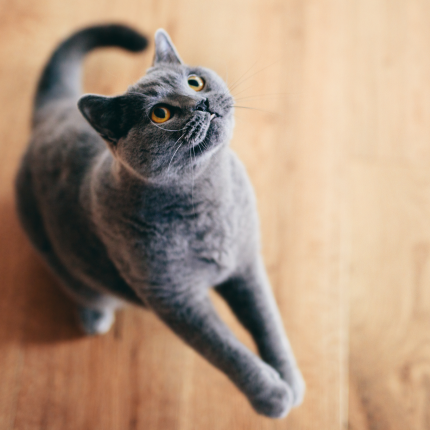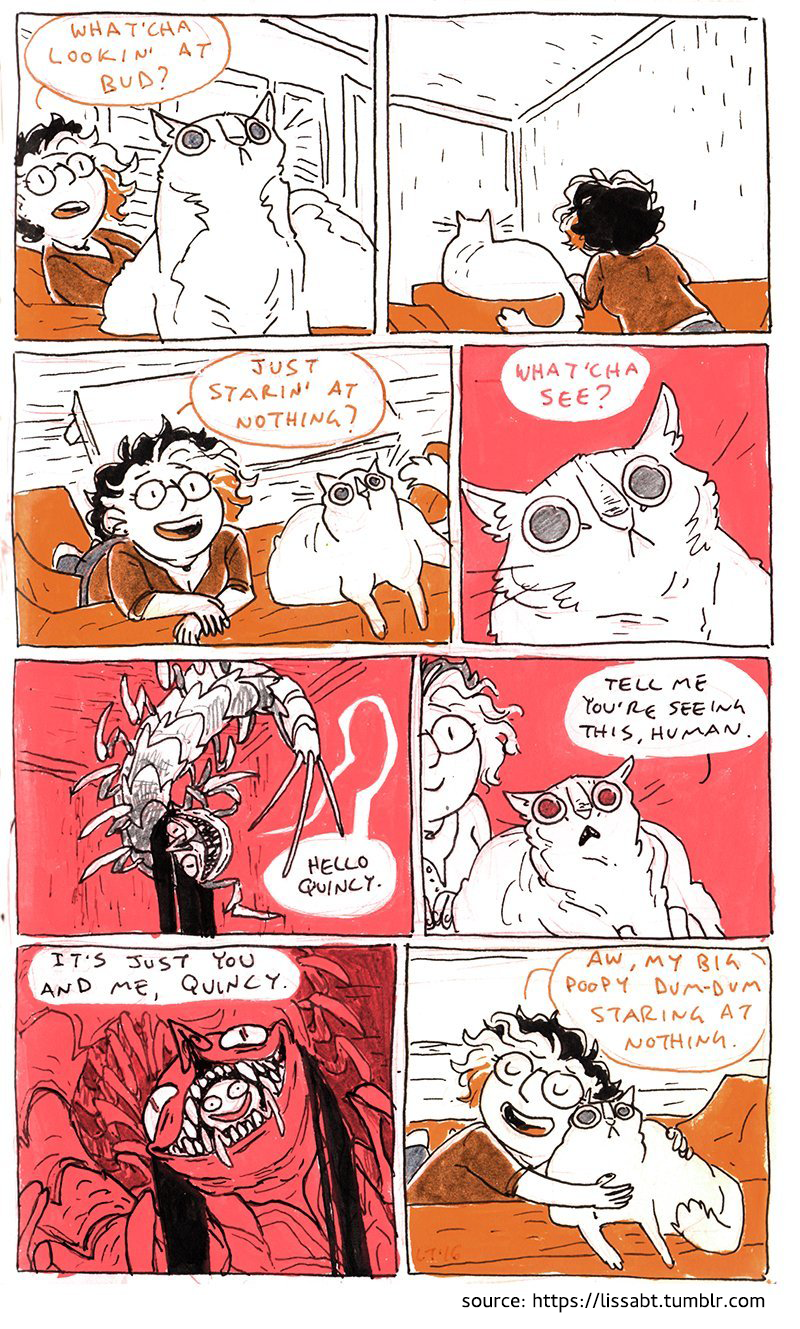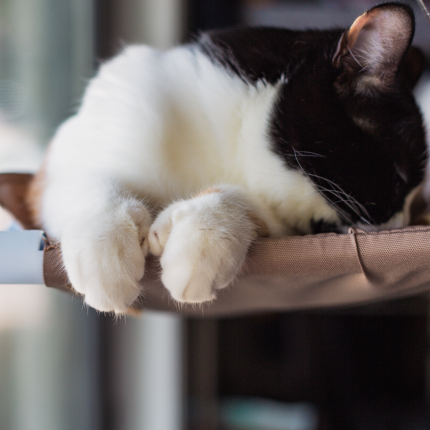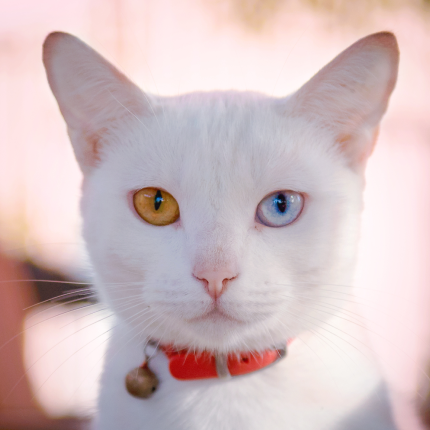Greebles and Cats: The Origin and the Meaning

You may have seen an internet sensation concerning cats labeled “greebles.” Feel out of the loop? We’re here to help you.
In 2019, Reddit user /user/literallyatree commented on a Reddit post about a cat that looks like it’s trying to slap a ghost. This user commented:
“My family calls things only cats see greebles. I imagine they’re sorta like tiny goblins that like to mess with cats.”
This comment went viral, and the subreddit /r/greebles was created; the description is: “You know when cats see something that’s not there? That’s a greeble. Only cats can see them. They’re like invisible gremlins that like messing with cats.”
With over 200K members of /r/greebles in only three years, it’s not surprising why this term caught on so quickly. So many cat parents can’t help but notice when their cat seems to spaz out over what seems like nothing. It’s not a stretch to imagine they’re battling something only they can see and is invisible to the human eye.
So why does this happening, really? Is it greebles, or is it something more scientific?
advertisement

Cats Have Ultraviolet Vision
The sun’s rays damage human retinas, so our eye’s outer surface (the lens) protects them from highly damaging ultraviolet light. However, the retinas of cats are much less vulnerable to UV damage, which allows ultraviolet light to penetrate their lens more easily. As a result, cats are more sensitive to subtle differences in brightness due to their ultraviolet vision.
Her UV vision could be to blame if your cat is intent on staring at the wall. Some insect species reflect UV light, so your cat may watch a tiny bug crawling up the wall that you can’t see.
Seeing Subtle Movement
The eye consists of two primary components: cones and rods. A well-lit room allows us to see colors across the spectrum, thanks to cones. By contrast, rods enable us to see in dim lighting, identify shapes, and detect motion. In general, cats have six times more rods than humans, so even though your cat may have difficulty distinguishing colors like you, she can see much better in the dark, thanks to her extra rods. A cat also has about 20 degrees more peripheral vision than a human, meaning she has a wider field of vision.
Your cat’s eyes may not be tricking her if she seems to be staring at something that isn’t there. For example, your cat may have seen a bird fly across the yard, a bug crawl down the hall, or just a large piece of dust float through the air.
advertisement
Something Is Making Noise
With their heightened sensitivity, cats’ ears can hear sounds and noises you don’t even know are there. Their hearing range is much broader and includes much higher pitches than humans. With this skill, cats can also pick up ultrasonic vocalizations from rodents such as rats and mice.
Your cat may not see anything if she’s staring full force at something you don’t see. For example, your cat may be attentively listening to a mouse squeaking in the attic, a mosquito squealing nearby, or a refrigerator buzzing. She’s simply focusing on what she’s listening to by staring.
Conclusion
The way cats act and what they do is usually very intentional. She has a good reason for staring at things that aren’t there or wandering around the room. Your cat might see, hear, or smell something you can’t, like a mouse running around the attic or a gnat on the wall. While we’re not discounting the existence of greebles, we certainly want to give our feline friends the benefit of the doubt.

Featured Articles

Why Do Cats Roll Over Into Their Backs But Not Let You Touch Their Bellies?
It’s common knowledge dogs love to have their tummies rubbed when they freely lay down before you and roll onto their backs. But, if you’re also familiar with cats, you know that when they roll onto their backs with their bellies exposed, rubbing the belly will most likely result in…

Greebles and Cats: The Origin and the Meaning
You may have seen an internet sensation concerning cats labeled “greebles.” Feel out of the loop? We’re here to help you. In 2019, Reddit user /user/literallyatree commented on a Reddit post about a cat that looks like it’s trying to slap a ghost. This user commented: “My family calls things…

Polydactyl Cats: Just More Beans to Love
Polydactyl cats have become extremely popular in recent times. As a result, more and more people are interested in learning more about this six-toed cat and want to get one of their own. If you are a cat lover intrigued by polydactyl cats, you have come to the right place….
